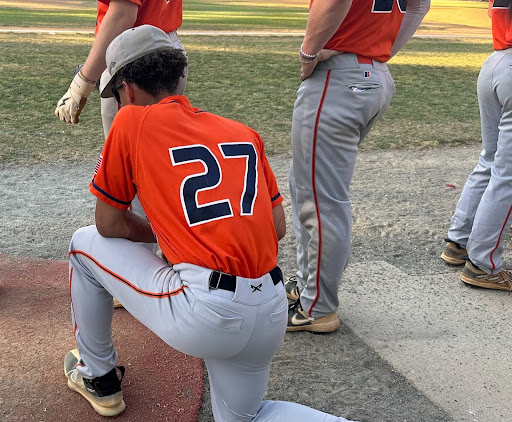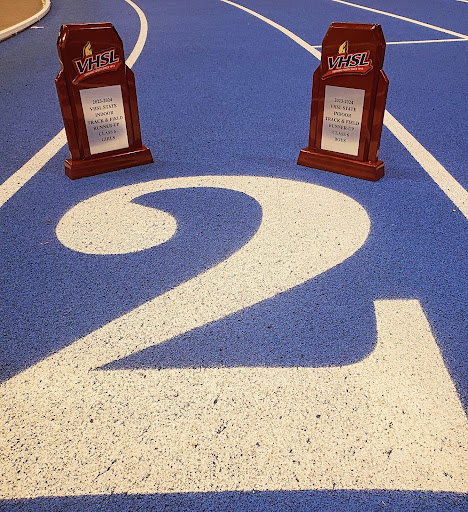
As the sun sets below the horizon, casting long shadows across the field, freshman varsity
baseball player Gavin Price bows his head in silent prayer. For athletes like Price, these are not mere quirks but sacred acts, believed to tip the scales of fate in their favor.
“Personally, I pray before every game. I thank God for waking me up and for having the opportunity to play on such an elite baseball team,” said Price
For Price, the pre-game rituals transcend mere habits. They carry a significance that touches on something profound.
“I started praying before every game when I was ten, after I lost my uncle. It made me realize how quickly opportunities can be taken away from you,” said Price.
Across the sports complex, sophomore JV softball player Sydney Crigger, has a different approach.
“I try my best to drink a Redbull before every single game, there’s been some games recently where I haven’t had one and it’s impacted my performance,” said Crigger.
To understand how these superstitions fit into the individual athletic experience, track coach Christopher Pellegrini shares his insights.
“While our team does have a team score component, our athletes typically perform individually in their open events. This does lead to athletes developing their own patterns and routines. State champion, senior Paris Johnson, believes eating five bananas prior to competition is the secret to success,” said Pellegrini.
Pellegrini has seen it all—athletes with their pre-game chants, lucky socks, and even the ritual consumption of bananas.
“I’m definitely a creature of habit. I really like having the team sit in the same area of the facility, and I always go to the same spot on the side of the track to coach athletes who are racing,” said Pellegrini.
Stephanie Noriega, volleyball coach, offered insights into the origin of team traditions, explaining the flow of superstitions.
“Player superstitions vary year to year. If there are key players or parents that are superstitious, it determines if the team is,” said Noriega.
Once these superstitions take hold within the team, they have a tendency to spread to the stands, captivating the hearts and minds of supportive parents and fans alike.
“I always have gum for the girls at their softball games, a tradition my mom started during my daughters little league days. It’s been a ritual for nearly a decade,” said softball mom Laura Schadle.
Just as the gum tradition has become a staple at softball games, Schadle reveals that her daughter, a junior on JV softball, Belle Schadle, has her own pre-game rituals.
“As for my daughter’s superstitions, if she doesn’t have her belt and ribbon she says she doesn’t play well. She also never steps on the baseline when going out to greet the umpire,” said Schadle.
As we’ve seen through the eyes of a dedicated softball mom, rituals are woven into the fabric of sports, providing comfort and a sense of control in an unpredictable game. While superstitions can serve as a hallmark of team identity, striking the right balance is crucial.
“When done correctly, superstition can add an element of team bonding that boosts morale, but when superstition becomes too dominant in team culture, it robs athletes of belief in their own abilities,” said Noreiga.
Price maintains a practical approach when it comes to superstition in sports.
“I don’t believe it changes whether or not I have a good game, for me it’s more about self assurance,” said Price.
Schadle acknowledges the unpredictability of rituals while still valuing her traditions.
“While I do have superstitions they don’t always work, but there’s no harm in having faith,” said Schadle.
The next time you see a player lace up their shoes in a specific order or tap the field’s entrance before stepping onto it, remember these actions are more than just mere habits; they are part of the unseen mental game that plays out in every sport. Who knows, maybe there is a little magic in believing.






